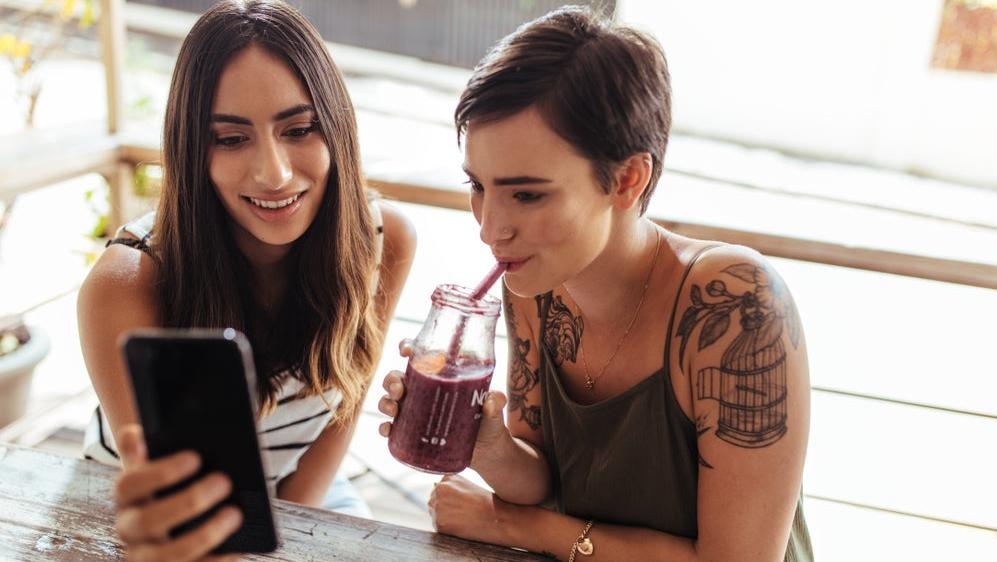Being A Food Influencer Sounds Terrible
The people who strategically stage smoothies all day are not living the carefree lives we assume.
Being a food influencer sounds cool as hell, doesn't it? You get to parade around town visiting restaurants you couldn't otherwise afford, enjoying meals on the house (or other forms of compensation) in exchange for posting appetizing photos. And since the focus is on the food, you don't have to look perfectly put together to amass a major following. Apparently, though, the gig is not as rosy as it seems: As more influencers leave social media behind to focus on other lines of work, certain downsides of the industry have come to light.
The New York Times has published a profile on Lee Tilghman, better known as @LeeFromAmerica, who left behind what might look like the dream job to us outsiders. Once upon a time, Tilghman would create sponsored posts on Instagram for things like frozen sweet potato fries and made a yearly salary comparable to that of an investment banker. But instead of punching out at 5 p.m., her workday never stopped. When you're an influencer, your personal brand is everything, your whole life becomes content, and your followers feel entitled to that content. Even worse, your livelihood depends on keeping those followers happy.
Tilghman, the NYT explains, began to fall out of love with influencing when she endured her first public cancellation in 2018, after announcing a series of workshops she'd be hosting around the country. Some of her followers freaked out over the ticket prices, which ran as high as $500. Others declared Tilghman was guilty of cultural appropriation for calling her events "Matcha Mornings" despite not being Japanese. (I have a feeling this was Lena Dunham.) Tilghman was so shaken by the sudden backlash that she gradually left influencing behind and transitioned to office life instead.
Notably, Tilghman isn't the only food influencer who's been rocked by an angry online response. For example, Yovana Mendoza's Instagram and YouTube pages are full of posts promoting a healthy lifestyle. For a while, she was one of the internet's premiere vegan influencers—until she decided to stop being vegan.
After experiencing health issues related to her vegan diet, Mendoza began eating some animal products again. To say that her followers were unhappy would be an understatement.
"People called me a fake, a liar, and much worse, and filled the comments sections of my posts with fish emojis," she told Women's Health in 2020, reflecting on a video of herself eating fish that went viral for all the wrong reasons. She took a break from posting and later returned to influencing, but lost over 100,000 followers in the interim.
"I was in shock and felt confused and ashamed at the response," she explained. "But I decided to learn from this situation and grow, evolve, and reinvent myself."
Ultimately, some influencers are growing tired of the game—and the restaurant industry's love affair with influencers might soon be coming to an end, too. According to the New York Post, some prominent Manhattan restaurants are banning flash photography—a move aimed directly at influencers pulling out their bright lights and disrupting other guests. The owner of one West Village eatery told the paper that all the phones and lights distract diners from what should be the foundation of any dining experience: connection.
"[We hope] guests will focus on the company they're with, over the need to capture a shot for social media feeds," the business owner said.
It seems that the key to being a successful influencer ultimately comes down to your mental wiring. To be able to sustain yourself on influencing requires, among other things, the ability to truly not give a shit what anybody thinks of you, ever. Perhaps peddling overpriced smoothies on Instagram should be Anna Delvey's next grift.
